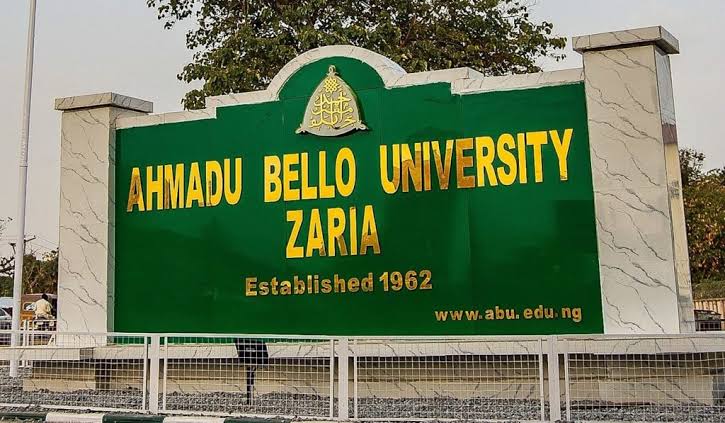Academic activities were grounded on Monday at Ahmadu Bello University (ABU), Zaria, as the institution’s branch of the Academic Staff Union of Universities (ASUU) declared total compliance with the directive of its national leadership to embark on a two-week warning strike.
The ASUU-ABU branch chairman, Comrade Haruna Jibril, confirmed this shortly after a congress held at the university’s main campus in Samaru, Zaria, saying the decision reflected the collective resolve of the academic staff to press home their long-standing demands.
“We have complied 100 per cent with the directive from our national body. Although this is the first day of the strike, we are optimistic that the level of compliance will remain total throughout the two-week period,” Jibril told journalists after the congress.
He said the union had no option but to join the nationwide warning strike in solidarity with the national body, noting that the government’s failure to meet the union’s demands had made continued patience untenable.
“Our members have remained steadfast and resilient despite years of neglect by successive governments. This strike is not for personal gain; it is about the future of our universities and the welfare of both staff and students,” Jibril said.
A visit by THE WHISTLER to both the Samaru and Kongo campuses of the institution showed an atmosphere of inactivity, with empty lecture halls and students seen loitering around campus corridors.
Advertisement
The usual buzz of academic life was replaced by clusters of students discussing the development.
At the Faculty of Education, lecture rooms were deserted, and students sat idly in groups.
A few lecturers were spotted around the faculty premises, but none entered classrooms to teach.
“This is unlike a normal Monday,” a final-year student, Shafiqah Abdullahi, told THE WHISTLER. “We have not had any lectures today. The lecturers were all around, but none of them entered the class for lectures. This development will not augur well for us, especially those of us in our final year. I believe we are the ones who will suffer more if the strike continues.”
At the Faculty of Social Sciences, THE WHISTLER observed some students returning from a test, while others expressed uncertainty about upcoming academic activities.
Advertisement
“Maybe it’s because it was still the first day. We were able to write a test this morning, and we were expecting to write another tomorrow. But I think we were allowed because most of the ASUU members were still holding their meeting when we wrote. Tomorrow’s test may not hold since the congress has declared total compliance,” he explained.
Reacting to the Federal Government’s “No Work, No Pay” threat, Jibril said members of the union were not intimidated by such pronouncements, describing them as familiar tactics that would not derail their struggle.
“We take the government’s threat seriously, but we are not rattled by it.
“We’ve been through this before. During the last major strike, we went for eight months without salaries, yet our members stood their ground. Some of our colleagues have been without pay for over 30 months because of issues related to the Integrated Payroll and Personnel Information System (IPPIS). Even the existing salaries are often insufficient to meet basic needs,” he said.
Jibril noted that the persistent neglect of public universities by the government was forcing lecturers into difficult economic situations, even as the cost of living continues to soar.
“The federal government cannot continue to pay lip service to education while expecting miracles in university classrooms. We are asking for what is fair — improved funding for public universities, better welfare for academic staff, and respect for our autonomy. That is all,” he said.
Advertisement
While some students expressed understanding of the lecturers’ position, others feared the industrial action could further delay their academic calendar.
“I understand the reasons behind ASUU’s strike,” said a 300-level student who preferred anonymity. “But it’s sad that students always bear the brunt. Every time there is a strike, we lose valuable time, and it takes months to recover.”
Another student, who identified herself simply as Mariam from the Faculty of Science, appealed to both parties to find a quick resolution.
“The government and ASUU should find common ground. We are tired of spending years on courses that should take less time. Every strike pushes us backwards,” she said.
The ASUU-ABU chairman urged members, students, and the university community to remain calm and resilient as the union continues to press for improved conditions in the university system.
“Our struggle is not against students or the university management,” Jibril clarified. “It is a collective struggle for the soul of our universities. We urge everyone to bear with us as we continue to fight for a better future for Nigerian education.”
He emphasised that the warning strike was only a prelude to further actions if the government failed to address the union’s demands, warning that the patience of academic staff was fast running out.
“This is a two-week warning strike,” he said firmly. “But if nothing is done within this period, our national body will decide the next line of action, which may lead to a total and indefinite strike.”
As at press time, the ABU management had yet to issue an official response to the strike, while students anxiously watched for developments from the national headquarters of ASUU and the federal government.

